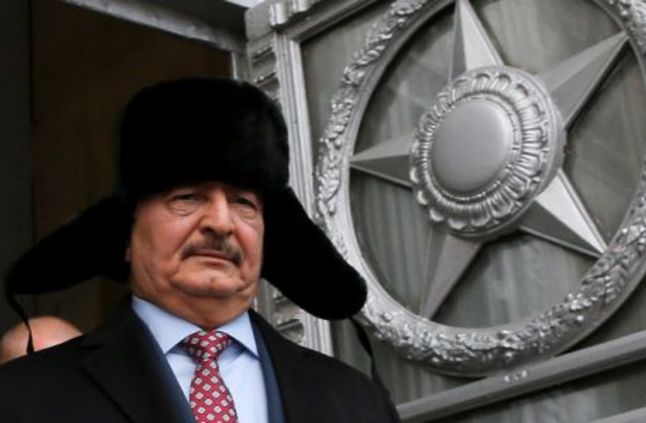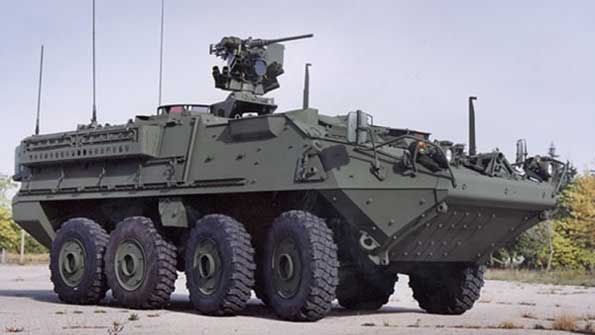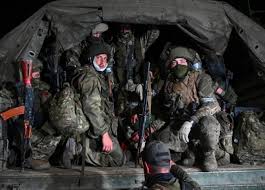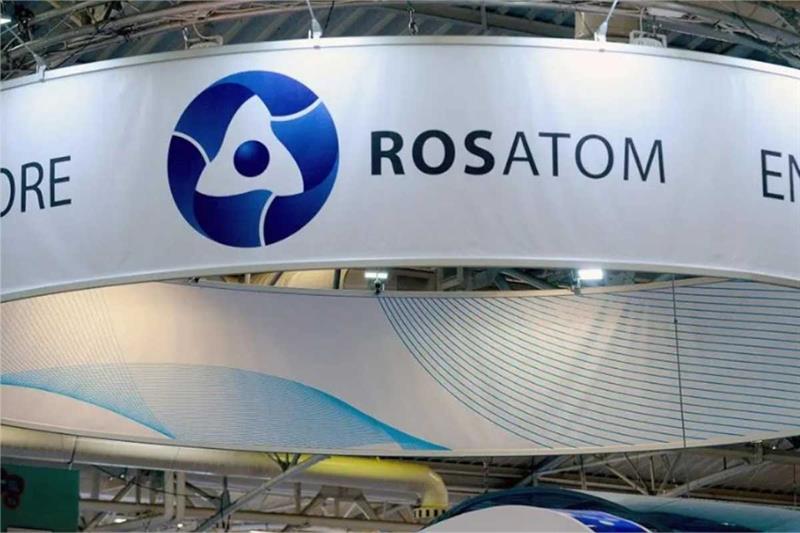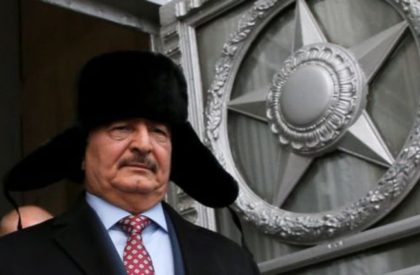 Russia, which has vehemently opposed NATO intervention that overthrew the decades-long Libyan dictator Gaddafi, sees new opportunities in the power vacuum in Libya where it tacitly endorses the all-powerful Libyan General Khalifa Haftar.
Russia, which has vehemently opposed NATO intervention that overthrew the decades-long Libyan dictator Gaddafi, sees new opportunities in the power vacuum in Libya where it tacitly endorses the all-powerful Libyan General Khalifa Haftar.
As part of a larger Russian strategy to bolster its presence in Libya, and through it in the Mediterranean, Haftar, who leads the Tobruk-based Libyan National Army (LNA), met Russian officials off the North African coast aboard Russian aircraft carrier, the Admiral Kuznetsov, returning from Syria.
The Russian news agency, RIA, reported that Haftar also held a video conversation with Russian Defence Minister Sergei Shoigu on issues relating to the fight against terrorism.
To gain a foothold in Libya, Russia relies on Haftar who emerged as an increasingly viable leader and military governors loyal to him have replaced elected municipal councils in a number of eastern cities.
Several media reports have been speculating about a potential secret deal between Hafter and the Kremlin according to which Russia will arm Haftar’s forces in his endeavor to gain control of the whole country in return for a Russian military base in Libya. Such reports have not been confirmed by the Russian administration.
Haftar paid two visits to Moscow in the past half year in a bid to secure arms supply despite a UN arms embargo in place since 2011 prohibiting the sale of weapons to Libyan factions, to the exception of the government in Tripoli, which can import weapons upon the approval of the UN Security Council.
Russia, which has recently called on the UN to give Haftar a larger say in resolving the Libyan crisis, said it would observe the arms embargo that prevents supplies other than to the UN-mandated government.
However, despite the ban, media reports say that Haftar has been steadily receiving arms through Libya’s land borders with Egypt and through the sea from its allies, including Egypt, Russia and the UAE.
Recently, Haftar’s Libyan National Army (LNA) announced its intention to “liberate” Tripoli from what they deem as “Islamist” control. Such an action will signal a return to an outright civil war in Libya and the collapse of the Skhirate agreement and the UN-recognized government.
Libya has been split between two rival governments: one based in Tripoli and the other based in the eastern city of Tobruk. The government in Tripoli is backed by the United Nations, while the government in Tobruk supports Hafter.
In December 2015, a unity government, called the Government of National Accord (GNA) was founded following the Skhirate agreement, but it failed to impose its authority over the whole country.
The turmoil in Libya has taken a toll on its oil production, which is currently about 200,000 barrels per day (bpd), a fraction of the 1.6 million bpd the OPEC member was producing before the 2011 uprising that toppled Gaddafi.
